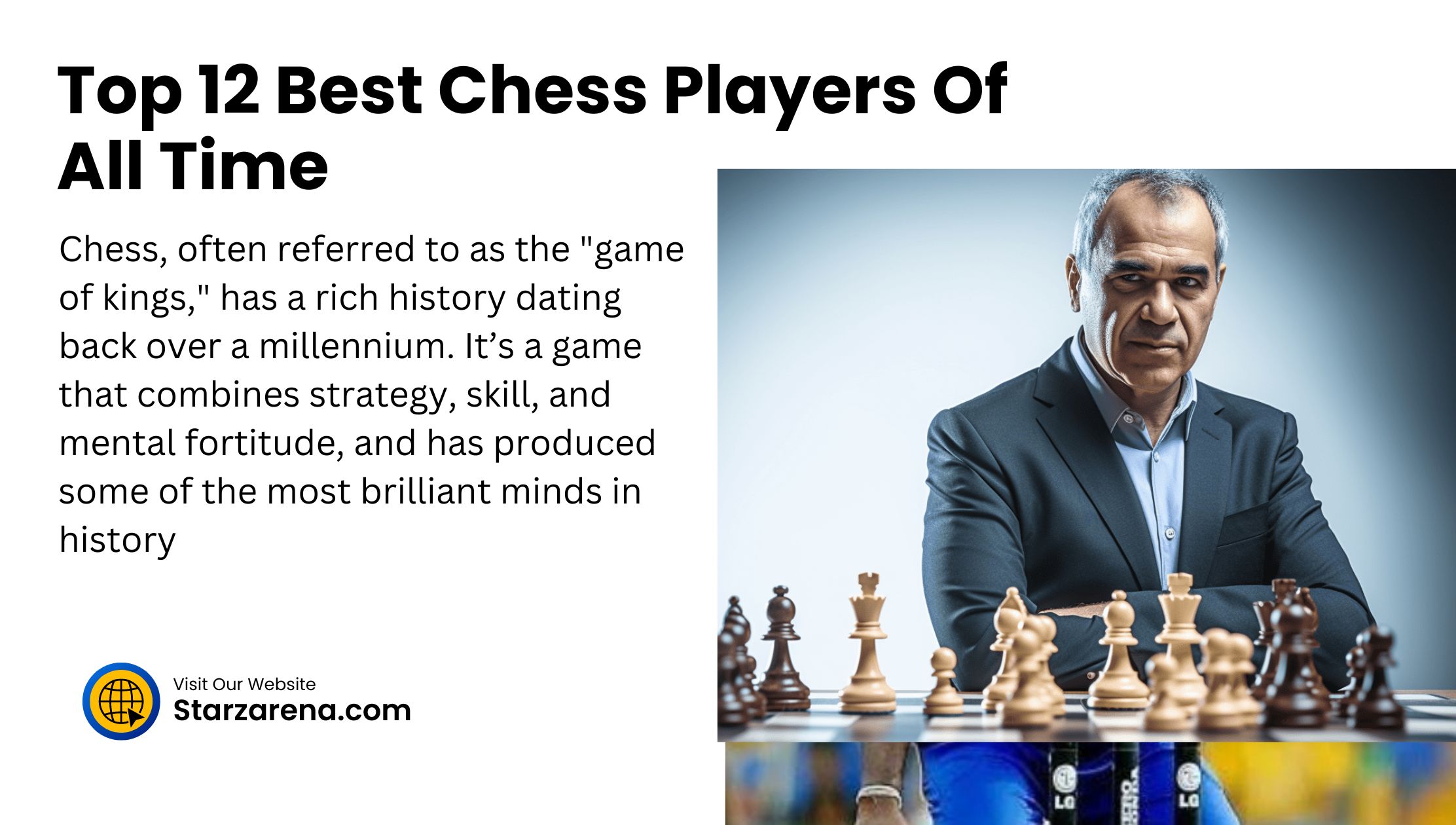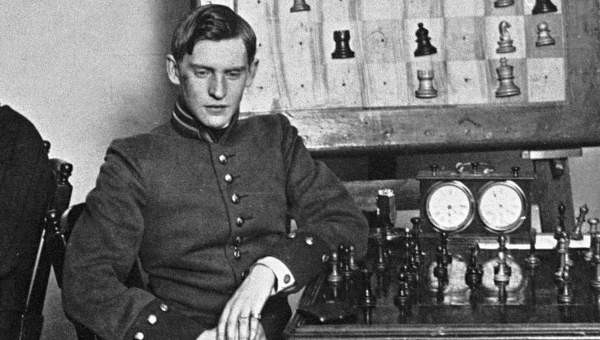Legends on the Board The Top 12 Chess Players of All Time
Chess—a game of strategy, intellect, and patience—has fascinated minds for centuries. For the competitive players, enthusiasts, and history buffs among us, knowing the legends who have shaped this game is both inspiring and educational. This article explores the careers and records of the top 12 chess players of all time, offering insights into their unique styles, remarkable achievements, and lasting legacies. Whether you’re looking to improve your game or simply appreciate the artistry of chess, these stories will captivate your mind and spark your imagination.
The Rise of Chess Masters
The history of chess is as rich and varied as the players who have mastered it. From medieval times to the digital age, chess has evolved, but the brilliance of its greatest players remains a constant source of awe. These masters have not only dominated their era but also influenced the strategies and techniques used by future generations.
1. Garry Kasparov
Garry Kasparov’s name is synonymous with chess mastery. Born in Baku, Azerbaijan, Kasparov became the youngest undisputed World Chess Champion in 1985 at just 22 years old. His aggressive style and deep understanding of chess strategy made him a formidable opponent. Kasparov held the title until 2000 and is known for his famous rivalry with Anatoly Karpov. His contributions to the game continue to inspire, as he remains an active commentator and writer.
2. Magnus Carlsen
Magnus Carlsen, born in Norway in 1990, has been a dominant force in modern chess. Known for his versatile playing style and exceptional endgame skills, Carlsen became the World Chess Champion in 2013. He has successfully defended his title multiple times and consistently ranks as the world’s top player. Carlsen’s innovative approach to the game and his ability to adapt to different opponents make him a true chess prodigy.
3. Bobby Fischer
Bobby Fischer’s genius and enigmatic personality have left an indelible mark on the chess world. Born in Brooklyn, New York, Fischer became the World Chess Champion in 1972 after defeating Boris Spassky in a match that captivated the world. His deep understanding of opening theory and unparalleled focus set him apart from his contemporaries. Fischer’s legacy continues to influence players and enthusiasts alike.
4. Anatoly Karpov
Anatoly Karpov, one of the greatest champions of the Soviet era, held the World Chess Championship title from 1975 to 1985. Known for his positional play and strategic depth, Karpov’s matches against Kasparov are legendary. His calm and calculated approach to the game earned him numerous titles and accolades. Karpov’s contributions to chess theory and his enduring influence make him a true icon.
5. José Raúl Capablanca
José Raúl Capablanca, a Cuban chess prodigy, became the World Chess Champion in 1921. Renowned for his natural talent and effortless style, Capablanca’s games are studied for their clarity and elegance. He held the championship until 1927 and is remembered for his contributions to chess strategy and endgame theory. Capablanca’s legacy continues to inspire players of all levels.
6. Emanuel Lasker
Emanuel Lasker, a German chess player, held the World Chess Championship title for an astonishing 27 years, from 1894 to 1921. His analytical approach and psychological insights into the game set him apart from his peers. Lasker’s longevity as a champion and his ability to adapt to different eras of play make him a timeless figure in chess history.
Read More: Top 10 Highest Wicket Taker ODI Cricket in the World
7. Mikhail Botvinnik
Mikhail Botvinnik, known as the “Patriarch of Soviet Chess,” was a three-time World Chess Champion. His scientific approach to the game and rigorous training methods influenced generations of Soviet players. Botvinnik’s contributions to chess theory and his role in the development of future champions like Karpov and Kasparov cement his place among the greats.
8. Viswanathan Anand
Viswanathan Anand, India’s first World Chess Champion, is celebrated for his versatility and speed. Anand held the World Chess Championship title from 2007 to 2013 and remains a top contender in international tournaments. His contributions to popularizing chess in India and his sportsmanship have earned him respect worldwide. Anand’s legacy continues to inspire new generations of players.
9. Paul Morphy
Paul Morphy, often referred to as the “Pride and Sorrow of Chess,” was a prodigious talent from New Orleans. Despite his short career, Morphy’s brilliance on the board left a lasting impact. Known for his aggressive and imaginative play, Morphy’s games are still studied for their tactical beauty. His contributions to chess theory and his influence on modern play are undeniable.
10. Alexander Alekhine
Alexander Alekhine, a Russian-French chess master, held the World Chess Championship title twice, from 1927 to 1935 and from 1937 until his death in 1946. Alekhine’s dynamic and aggressive style, combined with his deep understanding of complex positions, made him a formidable opponent. His contributions to opening theory and his innovative play continue to be studied by chess enthusiasts.
11. Tigran Petrosian
Tigran Petrosian, known as the “Iron Tigran,” was a Soviet-Armenian World Chess Champion from 1963 to 1969. Petrosian’s defensive skills and ability to neutralize his opponents’ attacks earned him a reputation as one of the greatest defensive players in history. His strategic insights and unique approach to the game have left a lasting legacy.
12. Vladimir Kramnik
Vladimir Kramnik, a Russian chess grandmaster, became the World Chess Champion in 2000 by defeating Garry Kasparov. Kramnik’s classical style and deep understanding of strategic play have earned him numerous titles and accolades. His contributions to chess theory, particularly in the Berlin Defense, have influenced modern play. Kramnik’s legacy as a champion and a thinker continues to inspire.
The Influence of Chess Legends on Modern Play
The impact of these chess legends extends beyond their individual achievements. Their contributions to chess theory, strategy, and training methods have shaped the way the game is played today. Modern players study their games to gain insights and inspiration, building on the foundations laid by these greats.
The Evolution of Chess Strategy
The strategies employed by these top players have evolved over time, reflecting changes in the game and advancements in theoretical knowledge. From the positional play of Karpov to the dynamic tactics of Fischer, each era has brought new ideas and approaches. Understanding these strategies helps players of all levels improve their own game.
Learning from the Masters
Aspiring chess players can learn valuable lessons by studying the games and techniques of these chess legends. Analyzing their moves, understanding their thought processes, and recognizing their strengths and weaknesses provide a roadmap for improvement. Whether through books, online resources, or coaching, learning from the masters is essential for growth.
The Role of Technology in Modern Chess
Technology has revolutionized the way chess is played and studied. Powerful engines and databases allow players to analyze positions with unprecedented accuracy. Online platforms provide opportunities for practice and competition against players from around the world. The integration of technology with traditional study methods enhances the learning experience and opens new possibilities.
The Future of Chess
The future of chess looks bright, with new talents emerging and innovations in training and technology continuing to shape the game. The legacy of the top 12 chess players serves as a foundation for future generations, inspiring them to reach new heights. The global popularity of chess and its increasing accessibility ensure that the game will continue to thrive.
Conclusion
Chess is more than a game; it’s a celebration of human intellect, creativity, and perseverance. The top 12 chess players of all time have each contributed to the rich tapestry of chess history, leaving an indelible mark on the game. Their stories inspire and educate, offering valuable lessons for players and enthusiasts alike.
Whether you’re a seasoned player or just beginning your chess journey, studying these legends will enrich your understanding and appreciation of the game. Explore their games, learn from their strategies, and join the community of chess lovers who continue to honor their legacy.






1 thought on “Top 12 Best Chess Players Of All Time”